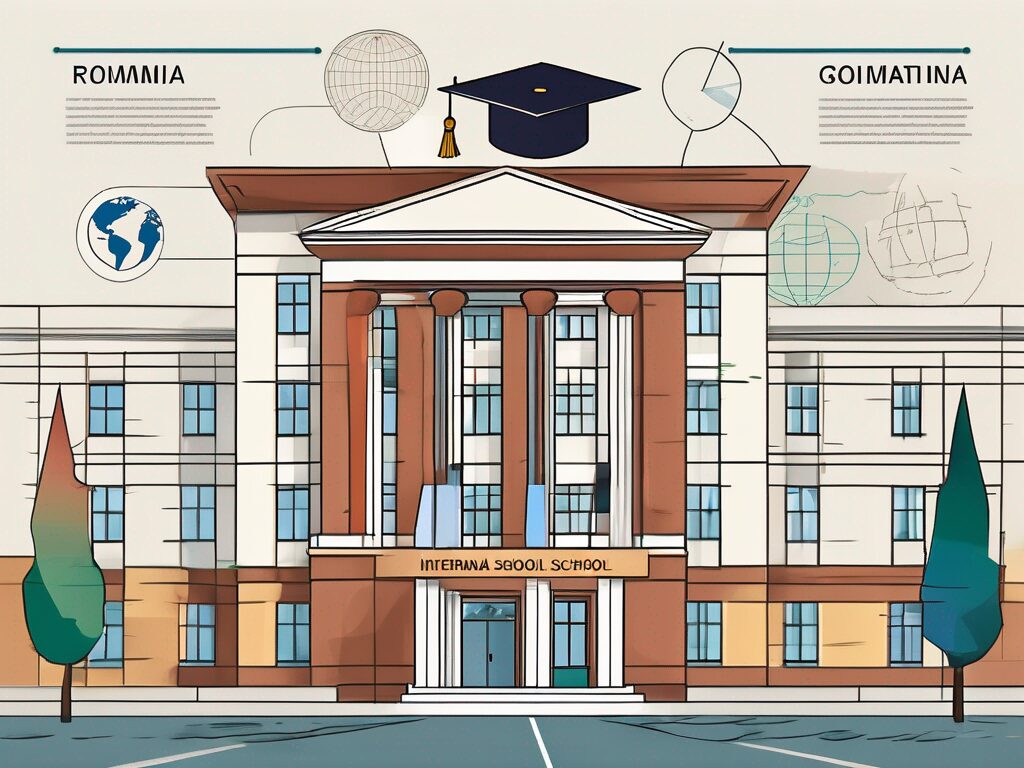A Comprehensive Guide to Teaching in International Schools in Romania
Romania, a nation rich in cultural heritage and historical significance, has emerged as a prominent destination for international educators. The country’s diverse landscapes and expanding international school sector present a distinctive opportunity for teaching professionals. This guide aims to elucidate the essential aspects of teaching in international schools in Romania, providing valuable insights for education consultants and prospective teachers.
Overview of the Romanian Education System
The Romanian education system is structured into several key stages, mirroring the framework found in the United Kingdom. These stages include:
- Pre-school education
- Primary education
- Lower secondary education
- Upper secondary education
- Tertiary education
International schools in Romania frequently adopt alternative curricula, such as the International Baccalaureate (IB) or the British curriculum, which may provide a more familiar educational environment for international educators. These institutions serve a heterogeneous student body, comprising expatriate children, students from multicultural families, and Romanian nationals pursuing an international education. The primary objective of these schools is to cultivate a global perspective and foster an inclusive educational atmosphere.
Qualifications and Requirements for Teaching in Romania
To secure a teaching position in Romania, candidates must possess the following qualifications:
- A Bachelor’s degree in education or a related field
- A recognized teaching qualification
- A minimum of two years of teaching experience (preferred by many international schools)
While proficiency in the Romanian language is not mandatory, it is advisable for educators to acquire basic language skills to facilitate daily interactions and enhance rapport with local staff and students. For non-European Union citizens, obtaining a work permit is essential, a process that is typically supported by the employing institution.
Advantages of Teaching in Romania
Teaching in Romania offers numerous advantages, including:
- Relatively low cost of living compared to Western Europe, enabling a comfortable lifestyle
- Competitive salary packages, often inclusive of benefits such as housing allowances, health insurance, and travel reimbursements
- Access to Romania’s breathtaking natural landscapes, from the Carpathian Mountains to the Black Sea coast
- Rich cultural experiences, including historical sites, vibrant urban centers, and picturesque rural communities
These factors contribute to a rewarding professional and personal experience, allowing educators to immerse themselves in a culturally rich environment while advancing their careers.
Challenges Faced by International Educators in Romania
Despite the numerous benefits, teaching in Romania may present certain challenges, including:
- Language barriers, particularly in rural areas where English proficiency may be limited
- Differences in educational culture, as Romanian schools may exhibit more traditional and formal teaching practices compared to Western educational systems
However, international schools typically embrace progressive teaching methodologies, aligning more closely with the expectations of international educators. Familiarity with local customs and educational practices can significantly enhance the teaching experience.
Strategies for Securing a Teaching Position in Romania
To effectively navigate the job market for teaching positions in Romania, consider the following strategies:
- Explore vacancies on the official websites of international schools
- Utilize online job portals and recruitment agencies specializing in international education
- Engage in networking opportunities through online forums and social media groups dedicated to international educators in Romania
These approaches can provide valuable insights, job leads, and support from fellow educators who have successfully transitioned to teaching in Romania.
Preparing for Relocation to Romania
Upon securing a teaching position, it is imperative to prepare for relocation. Key considerations include:
- Arranging suitable accommodation
- Managing financial matters, including banking and currency exchange
- Conducting research on Romanian culture and customs to facilitate a smooth transition
Relocating to a new country can be a significant adjustment; however, it also presents an exciting opportunity for personal and professional growth. A proactive approach will enhance the overall experience.
Conclusion
Teaching in international schools in Romania represents a unique and enriching opportunity for educators. It allows for cultural immersion, contribution to a diverse educational community, and exploration of a historically and geographically fascinating country. With appropriate qualifications, thorough preparation, and a commitment to professional excellence, this career path can be immensely rewarding.
Enhance Your Teaching Career with IPGCE
Are you ready to elevate your teaching career in Romania’s international schools? Consider joining IPGCE, the leading teacher training program in the UK, designed to help educators overcome common qualification barriers. Enhance your professional credentials, increase your chances of securing interviews, and unlock new career opportunities. Connect with a global network of educators, gain insights into international curricula, and enjoy the flexibility of professional development alongside your teaching commitments. Do not let inadequate qualifications hinder your progress. Enroll in the IPGCE program today and embark on a transformative journey in international education.

